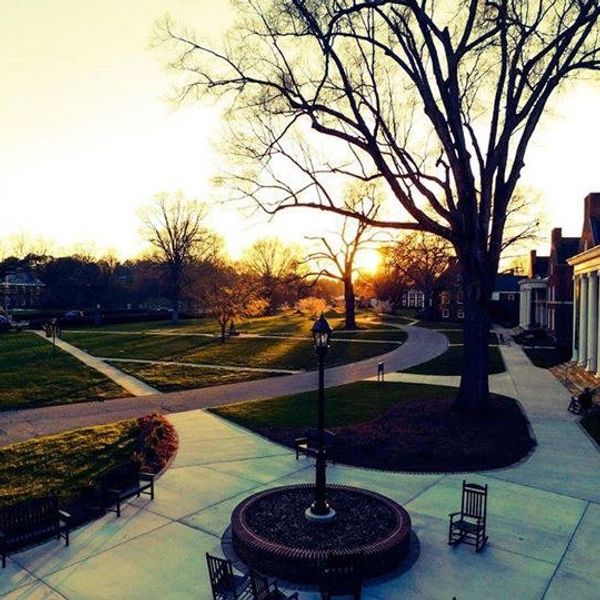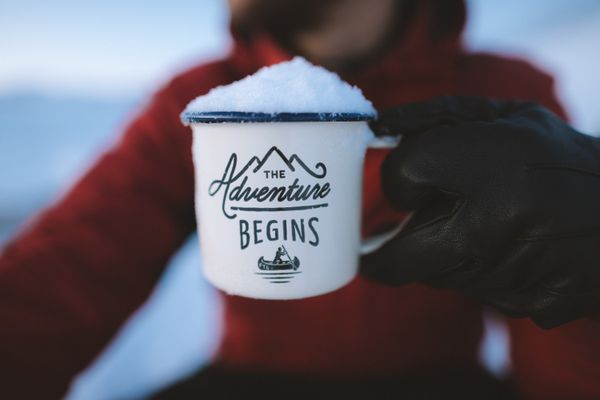My roommate and fellow Odyssey writer, Monica Muriel, and I decided to write an article together this week.
We started volunteering this semester through Eastern's Community Center for Engagement. We decided to do our volunteer work at a place called Connecticut Community for Addiction Recovery or CCAR for short. When we signed up for the program, we were told we would attend the all recovery meetings and then assist those who come to CCAR with any job searches or career building strategies that they needed to strengthen. We didn't know what to expect from the program, but what we learned from it truly changed us.
Week after week we'd sit in on these meetings and listen to these strangers pour their hearts out right in front of us. They'd talk about success, they'd talk about failures, and they'd encourage each other to keep moving forward with their recovery no matter what obstacles stood in their way. What surprised us the most is that these people were just like us. Willimantic, CT has such a bad reputation for drugs and people look down on those in recovery when really they are just like everyone else. The only difference was the struggles we face and their struggles.
We decided we wanted to do an article on CCAR to raise awareness about the awesome things they are doing, raise awareness about recovery, and show that even though these people had a rough past, it only made them realize their true potential.
First, we sat down with John Schwartz. John is the Volunteer Coordinator at Windham Recovery Community Center (which is Windham/Willimantic's CCAR center).
![]()
Q: How long have you personally been in Recovery?
A: “Well, I’m what they call a retread, I was in recovery from 1986 till 1990 then I decided I needed to do a little graduate work. I came back into recovery in 2009 and the day after tomorrow (Wednesday, December 7th) I will have 7 years clean and sober.”
Q: Why did you begin the recovery process?
A: “To save my own life and so I wouldn’t lose everything that was important to me because, believe it or not, there were still a few things that were important to me.”
Q: What would you say to somebody who is unsure if they want to become a part of the recovery process?
A: “I would say that it can’t hurt to try it because if you don’t want it all the misery in the world is waiting for you and you can have it back any time you want. What the hell do you have to lose?”
Q: What has been the hardest part of recovery?
A: “The surrender of ego has been the most challenging thing for me and I think I approached recovery like a check-list. I thought that if I could get something done then I would be done with it permanently and that is not the case. There are things that recur and they recur on a regular basis and sometimes it is rather trying to keep readdressing the same issues over and over again. Nonetheless, it is necessary.”
Q: What do you get out of being a volunteer here, at CCAR, everyday?
A: “I can’t even begin to describe the benefits of being in a place like this. I mean, for me personally as a person in recovery, my capacity for empathy and for getting outside of myself has been increased like, exponentially. And I think that as a volunteer, if you see the way people in recovery support the people who are trying to get into recovery and how they love each other in a way that that it is not like a regular love. It’s like people after a shipwreck on a lifeboat. There’s that kind of care and immediate concern involved in the recovery community that you don’t get a lot of other places and I think that the benefits of interacting with people who are in recovery, that really want recovery is that you tend to take on their sense of commitment and gratitude. It’s like the tide that lifts all boats, you can’t help but be better after you’ve been in a recovery meeting, even though a lot of the things that people discuss can be depressing. It’s a strange sort-of counterintuitive process. I encourage anybody who’s interested in getting a look at that to come down here and have a look.”
Q: Does being a volunteer here help you with your own personal recovery?
A: “Oh, absolutely! Like I said, one of my biggest problems, that probably applies to many of those with addiction problems, is that I’m terribly self-centered. So, anytime that I can not think of myself I am healing, I am getting better, my life is improving. Being in this place gives me the opportunity to get outside of myself 100 times a day and I am very very grateful for that opportunity.”
The second person we had the pleasure of interviewing was Francisco DeJesus, or Frankie to everyone down at CCAR, who is a recovery coach and a key volunteer.
Q: How long have you personally been in recovery?
A: "It will be a year December 26th."
Q: Why did you begin the recovery process?
A: To be quite honest with you, it was either recovery or death."
Q: What has been your best recovery experience so far?
A: "I would definitely have to say being a volunteer here [CCAR]. You get to see many different stages of recovery, many aspects of people wanting to get into recovery. All in all, CCAR would definitely be one of my faves."
Q: Do you have a favorite recovery quote or saying?
A: "The serenity prayer and the Lord's Prayer always come to mind but at the end of the all recovery meeting I always say 'Continue to go to bed grateful and wake up willing'. You know, that's my thing. I made it my thing. Literally go to bed at night I remind myself what I'm grateful for and when I wake up, I'm willing to go through that process all over again."
Q: What would you say to someone who is unsure of recovery?
A: "As a recovery coach I would talk to them and see how they're feeling. I would ask them what they think would happen or how not getting in to recovery is going to benefit them. It's convincing them to do the right thing. For me, it was pretty easy to make that because I have children to live for. I want recovery for everyone but you can't push it on them. They've gotta want it, you know?"
Q: How gratifying is it for you to volunteer here and do you think it helps you with your own recovery?
A: "Absolutely. That's why it's one of the highlights of my own recovery. You know, when I first started volunteering here back in February, right of the rip I started working at the desk being a receptionist and just saying the kind words: 'Thank you for coming to CCAR. How can I help you in your recovery today.' You know, some of the people that walk through these doors haven't really found recovery yet and that's what they wanna hear, that's what they need to hear. I remember a colleague of mine walked in and I said those exact words and he said 'You just did'. That always rings a bell, you know what I mean? Just those little words can help somebody. It's just a good thing to be able to give back to the community that, before I got here, years ago was called heroin town. I know people still refer to it as heroin town, but it doesn't need to be that. It's just a label. But being able to give back to people in their own recovery definitely helps mine. It helps me remember where I came from."
Monica: "Volunteering for CCAR was a wonderful experience for me. It really opened my eyes and allowed me to meet such genuine and nice people struggling with the disease of addiction. I would recommend to get involved with a center like CCAR for a great experience."
Makayla: "Personally, one of my best friends is in recovery herself so I've heard her stories. However, everyone's recovery is like a snowflake. They all look so similar from afar, but when you look at them closely you realize how unique they are. Hearing all of the stories and seeing these people come together the way they did, it still gives me chills. I was just really blessed to be given the opportunity to experience CCAR."
We hope you all will try to volunteer some of your time to any center or organization of your choice. Also, if you or someone you know is struggling with addiction or your recovery, there are three CCAR locations in Connecticut who would be more than happy to assist you in your recovery:
• Windham Recovery Community Center, 713 Main Street, Willimantic. Phone:860-423-7708
• Hartford Recovery Community Center, 198 Wethersfield Ave, Hartford. Phone: 860-244-3343
• Bridgeport Recovery Community Center, 49 Cannon St, Courtyard Rear, Bridgeport. Phone: 203-332-3303























